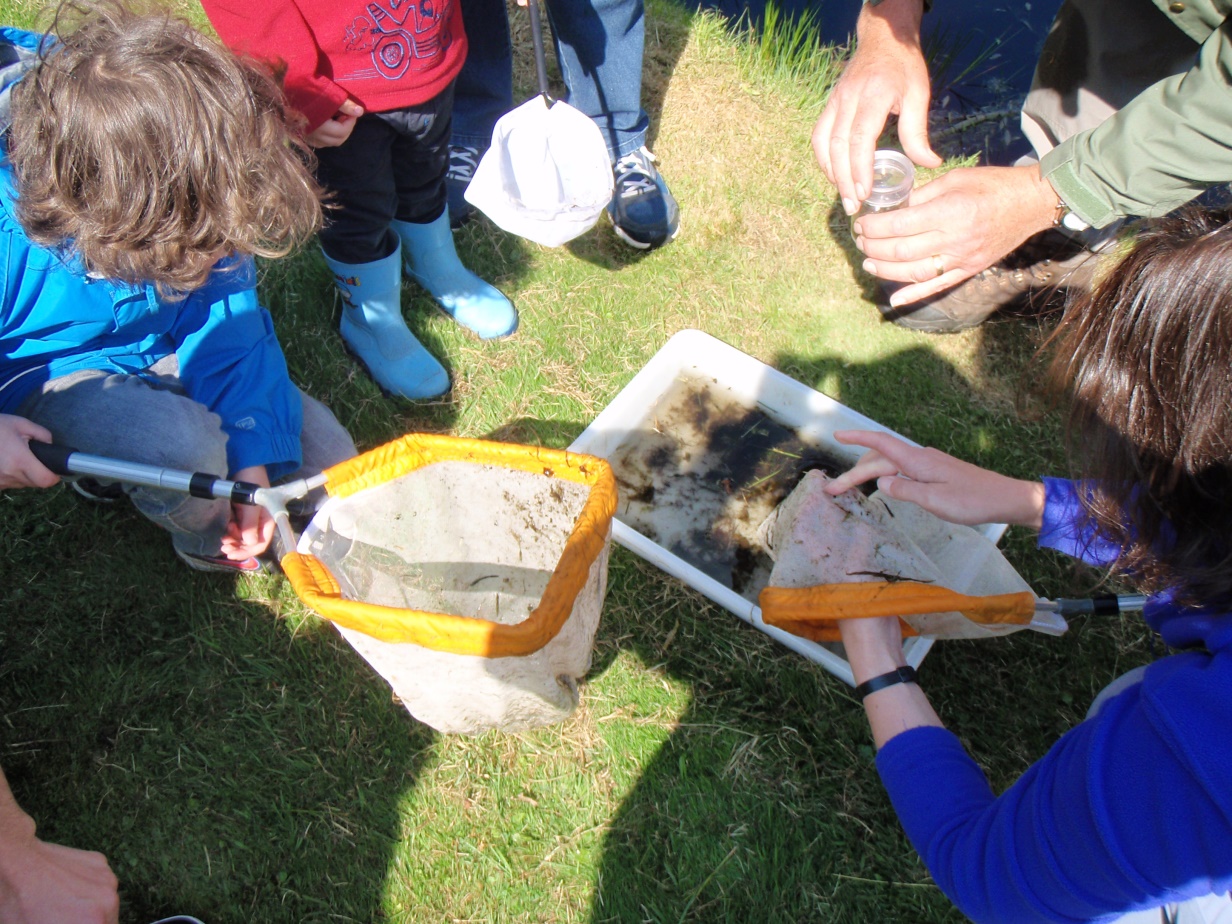The life in the pond has changed as it has done every year and will continue to do so as the year progresses. Mayfly and dragonfly nymphs have also metamorphosed and emerge to add brilliant splashes of colour the pond and surrounding areas as they hunt midges and other small flies, whirligig beetles move in incredible patterns and at amazing speed on the surface hunting trapped flies. They detect these using a method very similar to radar where they can detect ‘echoes’ bouncing back off of potential prey.
Below the surface, what’s to be found? Every net brought back ‘something’. There were the recognizable creatures like the newts and various diving beetles. Beetle like creatures with strange looking red eyes proved to be either water boatmen or backswimmers. Water boatmen are a light creamy green underneath and a dull brown above while the appropriately named backswimmers are similarly disguised but with colours reversed. Simple but effective camouflage. Long slim 6 legged dragon or mayfly nymphs were also caught. At this time of year they are almost ready to emerge and their immature wings could be clearly seen. Voracious predators of worms, other nymphs and even young newts they will soon emerge and chase midges and flies over the lilies.
Diving beetle larvae are also predators and we actually brought on our which was about 4 cms in length and very firmly attached to a young newt. This is the fate of many of the pond’s newt, frog and toad offspring, food for the many pond predators. It is why they produce so many eggs. Of the thousands laid in the pond very very few will survive to adulthood, but hey, it only needs some to make it. Our nets, and incidentally approximately 90 people, adults, teenagers and young children took part in the two sessions, usually also brought up an unappetising looking mix of mud and dead leaves. A quick search through this would uncover water hog lice, flatworm, bloodworms, caddis larvae and water fleas by the hundreds. We also found several leeches, probably so called horse leeches, but in fact predators of snails and fish. Fish. Earlier I wrote that the round pond has no fish. Wrong. I was helped on the day by Elizabeth Tindal who will be doing most of the rangering this season and she spoke of finding sticklebacks in the pond, and sure enough when clearing up at the end of a busy but very rewarding day we saw a fish! Very small and too far away to be certain of the species, but definitely a fish.
< Back to News & Social



